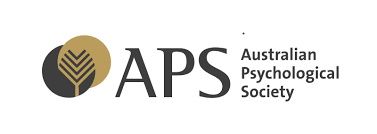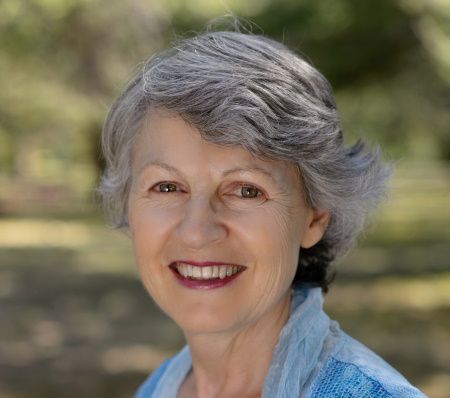


Marie Bloomfield
Clinical Psychologist
Ageing with mindfulness and self-compassion
As we age, we deal with many physical, emotional and social changes. Indeed, ageing positively can be a great challenge. We notice an unwelcome decline in our abilities which we once took for granted. Some of those changes can have a positive and negative impact on our mental and physical health. We all need to adjust to a new lifestyle, as our children leave home, retire, become grandparents, lose loved ones, or deal with health issues. We are all looking for ways to adjust to these new situations.
So what can we do to have more happiness as we age?
The emerging research suggests that as we age, mindfulness, meditation and self-compassion are psychological skills that can be learned to promote well-being and contribute to an overall quality of life. Mindfulness and self-compassion are practices that can help us to embrace the unpleasant changes that are an inevitable part of growing old.
Mindfulness refers to paying attention to emotions, thoughts, or inner experiences in the present moment without judgments. It is a skill that involves noticing our current thoughts, feelings, and sensations as they are, with acceptance and non-judgmental awareness. We can cultivate formal mindfulness through meditation or informally by focusing on the here and now, in our everyday activities, and becoming a kind observer of our experiences.
Compassion is defined by Paul Gilbert (2006) as an inherently human motivation: “a sensitivity to the suffering of others and in ourselves with a commitment to try to alleviate and prevent that suffering”. There are three flows of compassion: compassion for others, receiving compassion from others and compassion for ourselves. Compassion is a powerful motivation that gives us courage, wisdom and strength.
Kristin Neff (2003) further defines self-compassion as being composed of three main components: mindfulness, self-kindness, and a sense of common humanity. We respond to one’s own experience with kindness, in the same way we treat a friend or loved one in times of struggle. Firstly, we practice mindfulness as we notice when we are struggling. We cultivate an awareness of our experiences, feelings, and thoughts in the present moment, with balance and equanimity. Secondly, we foster inner kindness, develop a supportive and positive inner dialogue, and talking to ourselves as a best friend/carer. Thirdly, we recognise that ageing is a universal experience, so we connect with others who are facing similar challenges. We adopt a broader perspective of personal flaws, recognizing that negative experiences are shared by every human being. Understanding that everyone encounters difficulties and setbacks at various points in life, fosters a sense of shared common humanity and reduces undue shame and negative self-image.
Self-compassion can assist older adults in dealing with difficulties with a more balanced, kind awareness, rather than feeling isolated, self-critical and negative about the experiences of growing older. We can deal with setbacks via a caring and compassionate orientation to the self, and by stimulating a sense of safeness and soothing that helps to balance different emotions and respond in a prosocial way. We cultivate a healthy attitude toward ageing because we practice acceptance of changes, emotional balance, behavioural flexibility, and realistic goal pursuits. Overall, self-compassion entails being gentle and soothing toward the self when facing challenges or failures, encouraging motivation for self-care, personal improvement and growth.
There is more and more research that points to the benefits of learning mindfulness, and self-compassion especially as we get older.
Cognitive health: improves attention, concentration and memory, and can help to delay the onset of dementia. Meditation can also preserve brain structures and slow down age-related brain degeneration.
Emotional well-being: reduce symptoms of stress, anxiety and depression while promoting emotion regulation as well as positive emotions such as contentment, gratitude, happiness, curiosity, life satisfaction, optimism with a sense of purpose and meaning in life
Sleep quality: improve the quality of sleep.
Pain management: cope better with pain.
Social connections and better relationships: promote understanding, appreciation and communication.
Self-compassion and mindfulness are especially helpful because we can activate them in times of hardship. Instead of responding with self-criticism, resistance, negative ruminations and shame, we can respond with acceptance and resilience to the challenges that life presents. The inevitable difficulties one faces with aging, make it even more important to engage in self-care by learning mindfulness and self-compassion.
Each 2-hour session will consist of an initial meditation followed by a topic and exercises in mindfulness and self-compassion. There will be writing exercises so please bring a notebook. At the end of each session, we suggest practices to do at home to learn mindfulness and self-compassion. We recommend initially 20-30 minutes each day of home practice. If this is too much start with 1-5 minutes a day and then increase gradually. Learning mindfulness and self-compassion is dose-dependent. The more you practice at home the more you will benefit.
In the 8 sessions, we will cover multiple topics starting with understanding and ways to practice mindfulness and self-compassion using strategies to deal with fears/resistance to compassion, self-criticism, shame, difficult emotions, and challenging relationships. We will also explore loving-kindness, motivation, acceptance, savouring, gratitude, compassionate self, and living our values to better care for ourselves and others.
On the following day of the session, Wednesday you will receive an email summarizing the content of the previous session and a reminder for the home practices. There will be audio of the guided meditations presented in the sessions available on this website resource page
At the beginning and end of the program, you will be asked to complete some evaluation forms. The information collected is strictly confidential and will only be viewed by myself. The data collection aims to evaluate the effectiveness of the program.
Notepad and pen. Please bring a notebook. In each session, there will be writing exercises and journaling.
Books (optional)
The mindful self-compassion workbook by Kristin Neff and Chris Germer, 2018
The compassionate mind workbook by Chris Irons and Elaine Beaumont
The gift of compassion: how to understand and overcome suffering by Stan Steindl, 2020
Choose compassion: why it matters and how it works by James Kirby, 2022
You are invited to join us for our next program
Ageing with mindfulness and self-compassion(Full-waiting list)
sponsored by Broadbeach U3A (Gold Coast)
This course is educational only and does not replace treatment or therapy. We provide information on health and well-being but do not prevail over the professional advice you have received from your health practitioner.
If you have recently or are currently going through a traumatic life event such as the loss of a close family member or friend, this may not be the right time for you to do this course.
While all the exercises and mindful movements introduced in this course are gentle, the decision to perform any of these remains your own. Please follow your careful judgement to decide if they are beneficial for you to do.
If you have doubts about how suitable this program is for you, contact your health practitioner for their advice.
You can also contact us for further discussion and clarification.
